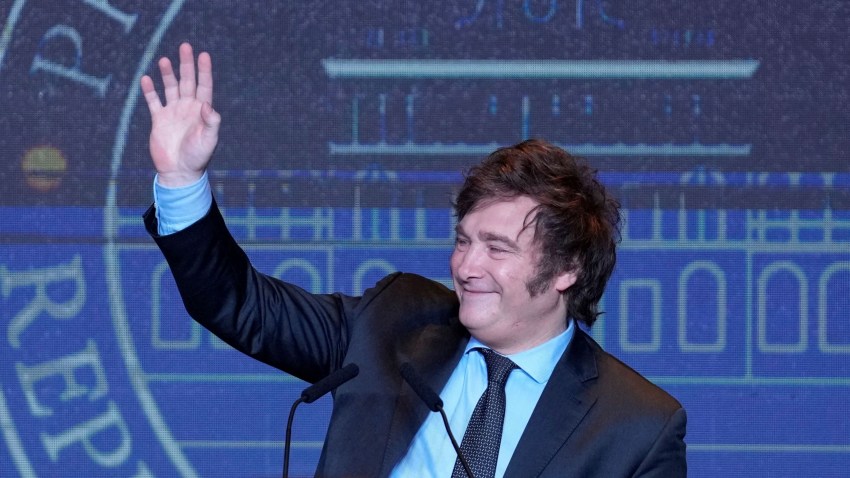After winning by a surprisingly large margin of 12 points in Argentina’s presidential election Nov. 19, the big question hanging over President-elect Javier Milei’s term in office is whether he can turn around the country’s crisis-stricken economy. Milei’s campaign promises of deep spending cuts and dollarization—or replacing the peso with the U.S. dollar as Argentina’s official currency—will be hard to implement given the country’s political and financial realities. With or without those policies, Argentina’s debt and currency challenges could still hold back his government. Alternatively, with a lot of luck, the macroeconomic environment and investor optimism could give the economy a sudden and unexpected boost.
But if Milei’s control over Argentina’s economic fate is limited, he’ll have free rein over the country’s foreign policy, and on that front, too, he is planning some very large shifts. The current administration of President Alberto Fernandez has pursued a foreign policy that is aligned with many of his leftist counterparts in South America, including Brazilian President Lula da Silva and Colombian President Gustavo Petro. He has built regional political alliances through the Community of Latin American and Caribbean States, or CELAC, and recently convinced the BRICS member states to make Argentina one of the countries included in the organization’s first expansion. The far-right libertarian Milei plans to undo all of that.
As a self-described defender of freedom, Milei rejects “communist” countries, by which he means not only China but also Brazil. Milei has called the Chinese government “assassins” and threatened to break diplomatic ties with Beijing, though he has backtracked on that position since winning the presidency. Knowing Milei’s anti-Beijing stance, China bet heavily on Sergio Massa, the losing candidate for the ruling Peronists. When Fernandez visited China in October, China released an additional $6.5 billion in yuan into the two countries’ bilateral currency swap account, hoping to help prop up the Argentine economy and prevent further currency devaluation prior to the election. China has been a major investor in the Argentine economy, and Beijing is concerned that an anti-China administration in Buenos Aires could harm Chinese interests ranging from mining to a secretive space station China operates in Argentina.

